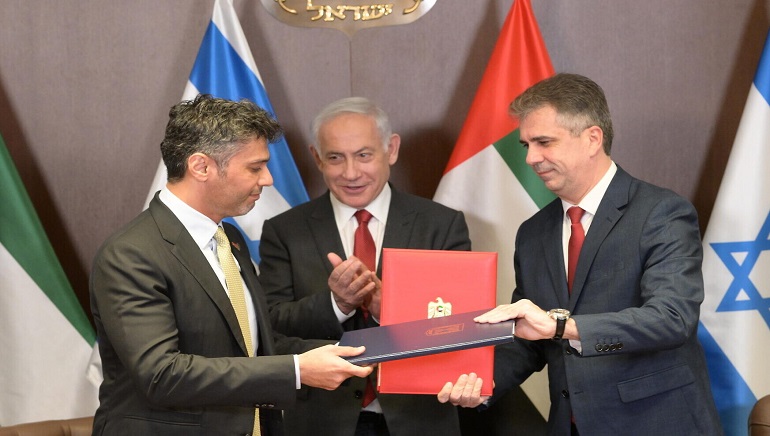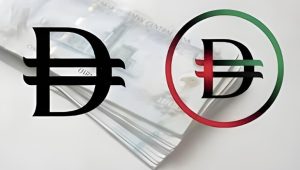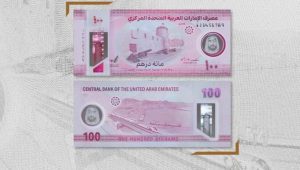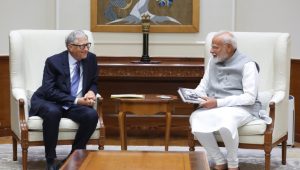Israeli Foreign Minister Eli Cohen and United Arab Emirates Ambassador to Israel Mohamed Al Khaja signed a customs deal on March 26 that paves the way for the countries’ free trade agreement to come into force. The Prime Minister of Israel Benjamin Netanyahu was present on occasion. The agreement will go into force on April 1.
The Israel-UAE Comprehensive Economic Partnership Agreement was signed in Dubai last May, but could not go into force until the two countries signed the customs agreement on Sunday. The customs agreement took time to conclude as the countries had to carefully go through every product and decide what would be covered. The agreement lowers or eliminates tariffs on more than 96% of tariff lines and 99% value of trade between the two countries.
Prime Minister Netanyahu said at the signing ceremony that the agreement will “bring about a reduction in customs, will bring down the cost of living, and will give a shot in the arm to business between Israel and the UAE.”
The free trade agreement covers regulation, customs, services, government procurement, e-commerce, and the protection of intellectual property rights.
According to the deal, about 96% of products traded between the countries, including food, agriculture, cosmetics, medical equipment, and medication, will be excused from customs duty. A number of products will be exempted immediately, while others will gradually be granted an exemption.
The UAE and Israel signed a normalization agreement in 2020 as part of the US-backed Abraham Accords.














